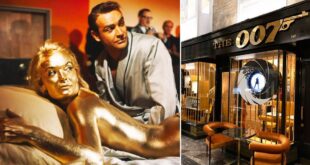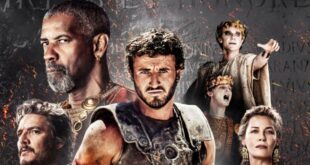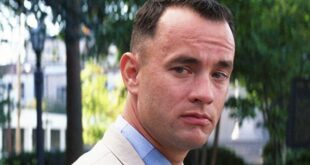
This largely autobiographical and wonderfully empathetic film begins (where else?) at the movies.
It’s 1952 and pianist Mitzi (Michelle Williams) and computer engineer Burt (Paul Dano) are taking their nervous six-year-old son Sammy (Mateo Zoryan Francis-Deford and later Gabriel LaBelle) to the cinema to watch his first film. Spielberg’s alter ego is traumatised by the climactic train wreck in The Greatest Show On Earth.
After repeated nightmares, he obsessively recreates it over and over again with his train set. Then the imaginative Mitzi hits on a way to save on expensive trips to the toy shop for replacement trains.
Handing him his father’s 8mm cine camera, she tells him to film the crash he can watch it repeatedly on screen.
This is a eureka moment for Spielberg’s alter ego. Through cinema, he can channel his fears and shape reality. A nervous little Jewish kid has become God.
Sammy will use his camera to woo girls, tame bullies and ultimately step out of his successful father’s shadow. But this isn’t just another portrait of the artist as a young man.
As Burt’s career sends the Fabelmans from Arizona to California, Spielberg assesses Mitzi’s thwarted artistic ambitions, her reckless sense of adventure and her relationship with his genial “Uncle” Benny (Seth Rogen).
While Williams plays Mitzi with a theatricality some may find jarring, Dano uses a sad smile to devastating effect as his wounded father.
Sammy’s (and by extension Spielberg’s) well-meaning parents are complex human beings living messy lives. Spielberg’s seven-times Oscar-nominated drama is a poignant tribute to them both.

 Latest Breaking News Online News Portal
Latest Breaking News Online News Portal




